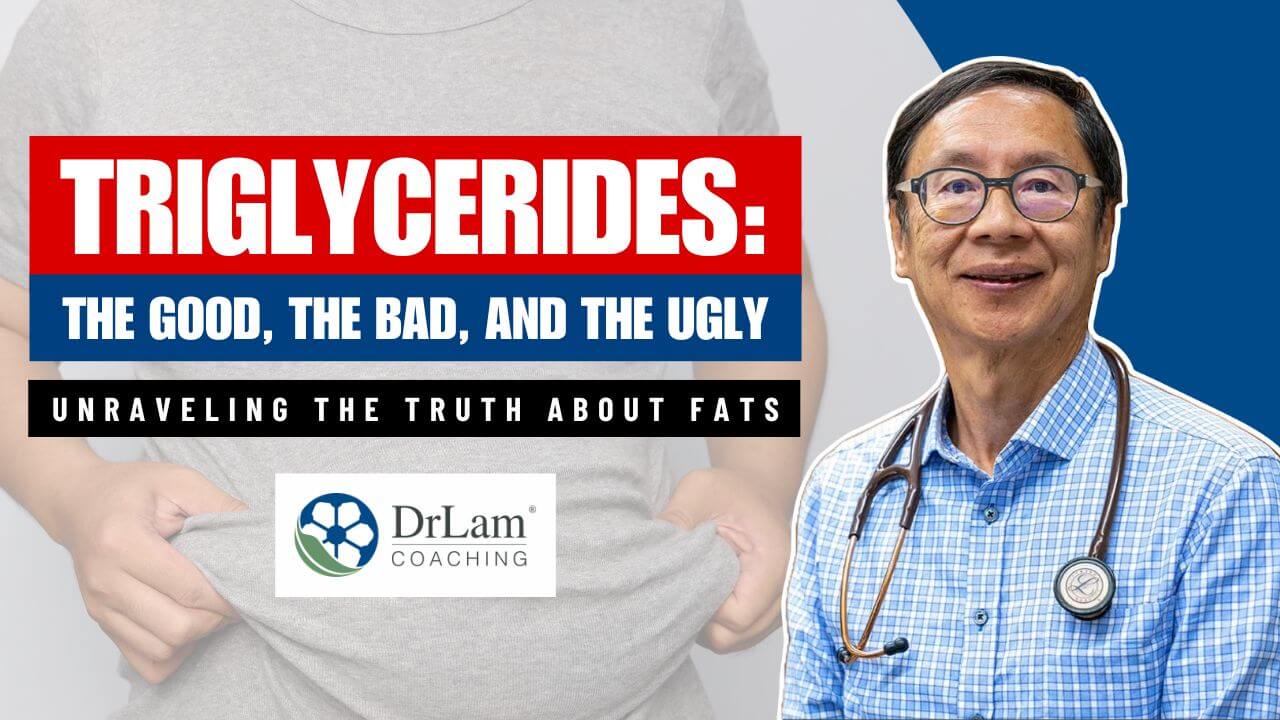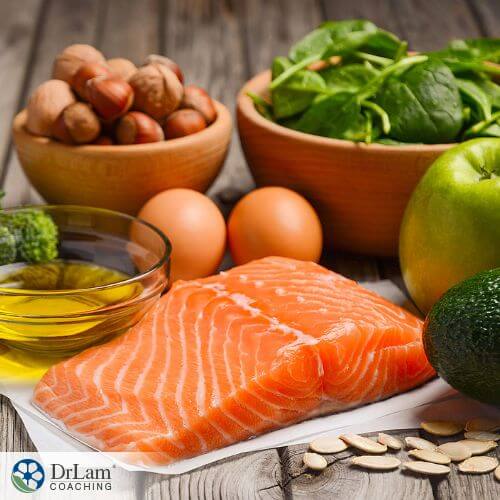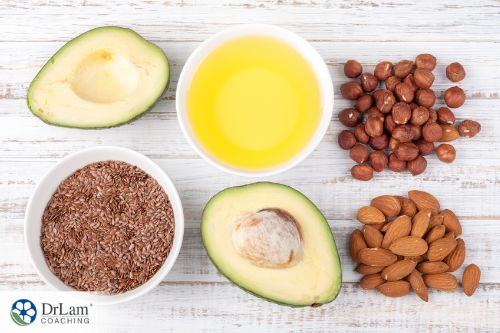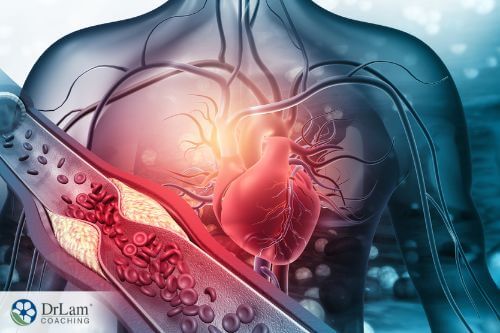
 Different types of fat have played an essential role in human nutrition throughout history, and they continue to do so today. Fat is vital for the body as a source of energy and essential nutrients. It is also crucial for regulating hormones and absorbing specific vitamins. As humans evolved, we consumed a wide variety of fats from various food sources. However, our modern diets have encouraged us to eat more of only certain types of fat, and not necessarily the healthy kind.
Different types of fat have played an essential role in human nutrition throughout history, and they continue to do so today. Fat is vital for the body as a source of energy and essential nutrients. It is also crucial for regulating hormones and absorbing specific vitamins. As humans evolved, we consumed a wide variety of fats from various food sources. However, our modern diets have encouraged us to eat more of only certain types of fat, and not necessarily the healthy kind.
Over the last few decades, dieting advice has suggested that all fats are bad for you, but this is not the case. Some fat is essential for your health, and some can even help you lose weight. This article explains the difference and how to get the most benefits from fats in your daily life.
Fat is a concentrated source of energy, and your diet should include a variety of healthy fats to meet daily nutritional needs. Different types of fat are also essential for growth, development in childhood, and maintaining health throughout life. The best fat sources are plant-based foods such as fruits, vegetables, nuts, seeds, and whole grains.
Many people believe that eating fat makes you fat, but this is not true. Eating too many calories from any food will cause weight gain. It's essential to eat various healthy foods, including fat-rich foods such as nuts and seeds, avocados and olives, oily fish such as salmon and mackerel, and extra-virgin olive oil. These are all healthy fats, and they also benefit your health because they contain vitamins A and E.
Dietary fats come in several varieties with different properties, functions in the body, and effects on the body's organs and systems. Other types of fat are generally classified based on their chemical structure.
These types of fat are solid at room temperature, and they're sometimes called "solid fats." The primary carbon structure of these fatty acids is "saturated" with hydrogen atoms, and they have only single bonds between carbon molecules. Saturated fats generally come from animal products, like meat, poultry, and dairy products.
Sources of saturated fats include:
Consuming too much-saturated fat over a long period may increase certain health risks. A high intake of saturated fat may cause an increase in levels of low-density lipoprotein (LDL) cholesterol, which increases your risk for heart disease and stroke.
The best way to know what you are eating is to read the nutritional labels on the food products. The nutritional label will tell you how many calories and grams of saturated fat are in a serving-sized amount of each product.
These types of fat are liquid at room temperature and are sometimes called "liquid fats." Unsaturated fats come from vegetable oils, nuts, and seeds. The primary structure of these fatty acids is "unsaturated" with hydrogen atoms and contains some double carbon bonds.
Fats with one double bond (monounsaturated) have one "hole" in their structure; they're missing two hydrogen atoms. Fats with more than one double bond (polyunsaturated) have more than one "hole" in their system; they're missing two hydrogen atoms. You can find both saturated and unsaturated fats in different foods, such as ice cream or butter. The solid part of the fat is usually saturated while the liquid part of the fat below it is unsaturated.
There are two types of unsaturated fats:
 Avocados, nuts, and olive oil are the primary sources of monounsaturated fats found in plant and animal foods. Monounsaturated fats are types of fat that occur naturally in many healthy food choices.
Avocados, nuts, and olive oil are the primary sources of monounsaturated fats found in plant and animal foods. Monounsaturated fats are types of fat that occur naturally in many healthy food choices.
Monounsaturated fats are liquid at room temperature and have a relatively high smoking point. They are ideal for cooking foods at high temperatures because they don't produce harmful chemicals like trans fats.
Monounsaturated fat molecules with hydrogen atoms are not saturated; each fat molecule has bonded with one hydrogen atom. Monounsaturated fats may lower LDL, or "bad," cholesterol levels and maintain healthy levels of "good" high-density lipoprotein (HDL) cholesterol. However, simply adding monounsaturated fat to the diet will not have this effect unless a person reduces their saturated fat and cholesterol intake.
A diet high in monounsaturated fats may be particularly beneficial for people with diabetes and metabolic syndrome. Research shows diets high in monounsaturated fat can improve insulin sensitivity and reduce the risk of developing type 2 diabetes. The monounsaturated fatty acid may help reduce the risk of cardiovascular disease, stroke, and certain types of cancer.
Polyunsaturated fats are good for us because they have open spaces not saturated with hydrogen atoms. There are two especially suitable types: omega-3 and omega-6 polyunsaturated fatty acids.
Omega 3s help keep the heart healthy, reduce triglyceride levels in the blood, and lower inflammation.Omega-3 fatty acids can also protect your brain, joints, and eyes. You can find them in fish, walnuts, and flaxseeds.
The other type of polyunsaturated fat is omega-6 fatty acids. These mainly occur in vegetable oils and processed foods. Consuming omega-6s in moderation and balance with omega-3s is good for us. They help reduce inflammation in the body and may help arthritis. However, an excessive intake of omega-6, typical in the standard American diet, may lead to increased inflammation and risk for heart disease.
Trans fats are harmful. They can clog your arteries, increase inflammation, and cause health problems. Trans fats have been linked to heart disease because they raise your bad cholesterol and lower your good cholesterol. Eating trans fats can lead to memory loss, asthma, ADHD, liver disease, bone weakening, and cancer.
Industrial seed oils, such as soybean and cottonseed oils, are the primary sources of trans fats. Bakers use seed-based products in recipes for baked goods like cookies, cakes, and pizzas. To a certain point, heating liquid vegetable oils can also form trans fats, as in fried foods like french fries or fried chicken.
Many processed foods and fast foods contain trans fat, so it's important to read food labels. However, trans fat on food ingredients lists is not always labeled. Trans fats can be hidden in products such as margarine and shortening.
One common misconception about eating fats is that it will lead to a stroke. However, there is no evidence to support this claim. While eating large amounts of saturated fats is associated with cardiovascular problems, eating moderate quantities of unsaturated fats helps your health.
Health experts generally recommend replacing saturated fats and trans fats with monounsaturated ones while maintaining a healthy diet. You might switch from eating red meat and margarine, for example, to eating more fish, nuts, salads, and pasta with olive oil.
However, if you've been on a low-fat diet, it's essential to work with your doctor before beginning a higher-fat diet. You should talk with your doctor about what types of fat are best for you and how much fat you should be eating each day. It can help you avoid any pitfalls of making sudden dietary changes.
 Fats play an essential role in recovery from stress. These fats help produce and release various hormones that play a role in regulating your stress response system. A balanced diet ensures you have enough of these hormones.
Fats play an essential role in recovery from stress. These fats help produce and release various hormones that play a role in regulating your stress response system. A balanced diet ensures you have enough of these hormones.
The NeuroEndoMetabolic (NEM) Stress Response is the system your body uses to deal with stressors. It's composed of six circuits of three related organs and systems each. The Cardionomic Circuit is especially affected by fats. This circuit consists of three organ systems: the adrenal glands, cardiovascular system, and autonomic nervous system. This system is connected to a number of other bodily systems, meaning that if it goes haywire, other systems in your body experience a cascading effect.
The Cardionomic Circuit is essential because it regulates blood flow to all body parts. High levels of fat deposits and cholesterol can inhibit this blood flow, leading to dangerous conditions like heart attack and stroke. High levels of trans fats can accumulate in the blood, which clogs the arteries and results in high blood pressure. High blood pressure is one of the most common forms of cardiometabolic diseases and can increase heart disease risk.
To avoid some of these side effects, it's best to consume fats in moderation while avoiding processed foods that contain trans fats or high glycemic index carbohydrates. It is best to include unsaturated fats like Omega-3s and olive oil in your diet instead.
Saturated and unsaturated fats play a prominent role in hormone production, which is something that can go out of balance when suffering from Adrenal Fatigue Syndrome. Whether physical, psychological, or environmental, stress will lead to the onset of this condition.
Trans fats are also a known cause of inflammation, the body's response to toxins or damage. Stress or poor lifestyle choices can cause inflammation resulting in various health problems. If you suffer from inflammation due to AFS, removing trans fats from your diet will help reduce symptoms and promote healing in your body.
When fatty acids are deficient in the diet, this can also stress adrenal glands. Cholesterol is the precursor to all adrenal steroid hormones; therefore, it's necessary to get enough fatty acids to produce these essential adrenal steroid hormones. You need to make higher cortisol levels when you are stressed, and this can only happen if there is enough available cholesterol around.
Oils, like olive and coconut, can also help boost the body's absorption of nutrients and protection from stress.
Different types of fat are an essential part of a healthy diet and provide various essential nutrients, such as vitamins A, D, E, and K. Fats come from many different foods like meat, fish, dairy products, nuts, seeds, and vegetables.
Fats help your brain, eyes, metabolic function, and heart. They also help form hormones that regulate everything from metabolism to mood. Hormonal imbalances may lead to serious health issues if left untreated for too long. It is common with adrenal fatigue.
Before you add more fats to your diet, it's essential to understand the different fats and their effect on your health. Not all fats are equally healthy; some can be very good for you, while others can increase your risk for heart issues.
It's also best to talk to your healthcare practitioner before making significant dietary changes to avoid potential pitfalls. It is essential if you have preexisting medical issues.
The team at Dr. Lam Coaching can help if you are looking for more information on incorporating healthy types of fat into your diet. We offer a free** no-obligation phone consultation which will discuss your symptoms privately over the phone at +1 (626) 571-1234 or through our Ask The Doctor system.
Monounsaturated and polyunsaturated fats are good types of fat because they are beneficial for your heart, cholesterol levels, and overall health. Foods rich in these types of fat include olive oil, avocados, nuts and seeds, salmon, and other fatty fish, seeds, and nuts.
